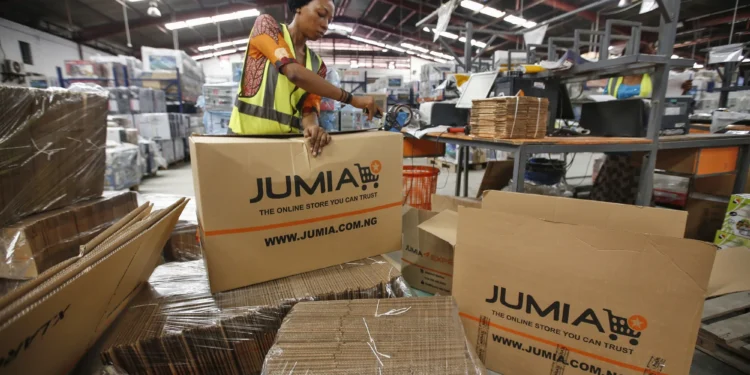Jumia Technologies, Africa’s pioneering e-commerce platform, remains on an upward trajectory despite the encroachment of Chinese retail giant Temu into the African market. The company has strategically optimised its operations, reducing costs while expanding into underserved regions, reinforcing its commitment to sustainable growth.
Francis Dufay, Jumia’s Chief Executive Officer, underscored the company’s resilience in an increasingly competitive landscape, asserting that the African e-commerce market possesses sufficient depth to accommodate multiple players. This perspective comes as Temu, an online retail platform owned by China’s PDD Holdings, made its entry into Nigeria in December 2023, marking its first foray into the continent. While acknowledging Temu’s aggressive market penetration, Dufay maintained confidence in Jumia’s expansion strategy, emphasising that the company remains well-positioned to capitalise on Africa’s burgeoning digital economy.
Jumia has adopted a multi-pronged approach to enhancing its financial stability. This includes an intensive cost-cutting initiative involving workforce reductions, the discontinuation of everyday grocery items and food delivery services, and the streamlining of its logistics operations. These efforts are aimed at improving operational efficiency while reinforcing Jumia’s core e-commerce business.
With a customer base of six million across nine African nations—including Nigeria, the continent’s most populous country—Jumia continues to extend its reach. These markets collectively represent a consumer base exceeding 600 million people, highlighting the immense growth potential within the region. The company remains committed to expanding its footprint by targeting new urban centres and underserved rural communities, where e-commerce penetration remains relatively low.
Despite the influx of foreign competitors, Jumia’s leadership remains unperturbed. Dufay affirmed that while new entrants may claim a share of the market, the overall sector’s expansion ensures continued opportunities for growth. This outlook is supported by Africa’s rapidly digitising economy and the increasing adoption of online retail solutions.
Jumia’s strategic direction also includes a concerted effort to reduce financial losses. The company aims to decrease its pre-tax loss by up to a third, with projections indicating a reduction to between $65 million and $70 million within the year. This financial recalibration is expected to place Jumia on a more sustainable path towards long-term profitability.
As the African e-commerce landscape continues to evolve, Jumia’s ability to balance expansion with cost management will be crucial. The company’s focus on leveraging market opportunities while maintaining financial discipline positions it as a formidable player in an increasingly competitive industry. With Temu’s expansion signalling heightened interest in Africa’s digital economy, Jumia’s strategic adaptations will be pivotal in securing its market dominance in the years ahead.



